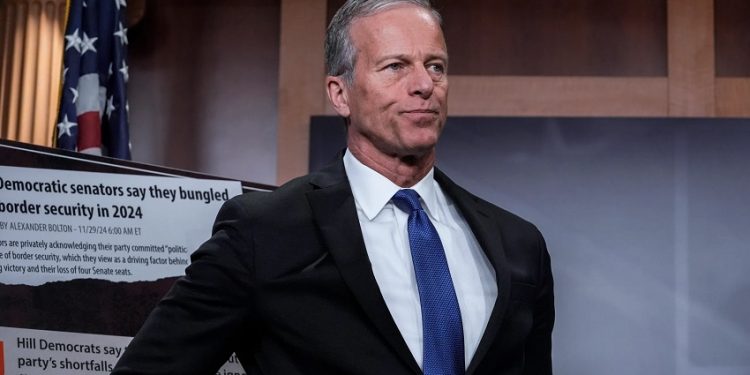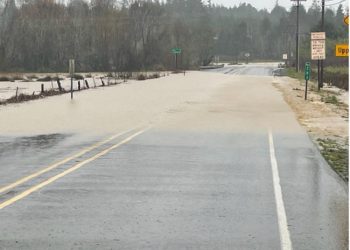Astoria, OR – The Senate has taken a significant step toward advancing the Laken Riley Act, a contentious bill aimed at cracking down on illegal immigration. The legislation, which passed the House earlier this week, is now under debate in the Senate after lawmakers voted to proceed with discussions.
The bill, named after Laken Riley, a Georgia student tragically killed by a Venezuelan migrant last year, seeks to implement stricter measures on illegal immigration, including provisions to detain and deport individuals without a conviction or concrete evidence. Its introduction follows growing concerns over crimes committed by undocumented migrants, particularly in the wake of high-profile incidents like Riley’s death.
However, the bill has sparked fierce debate, with some Democrats voicing strong opposition to its current form. Oregon Senator Jeff Merkley, one of the most vocal critics, has expressed willingness to engage in the debate but insists on making bipartisan amendments to ensure the legislation strikes the right balance between security and civil liberties.
“As it’s written, I will not support this bill,” Senator Merkley stated. “I’ll support debating the bill, and I’m looking forward to the opportunity for amendments to address where it’s the appropriate balance, but essentially a license to detain and deport without even a conviction or evidence that anything’s been done, that’s dangerous.”
Merkley’s remarks highlight the growing division within Congress over how best to handle the complex issue of illegal immigration. While supporters of the bill argue that stronger measures are necessary to protect American citizens, critics warn that the bill’s provisions could lead to violations of due process and civil rights.
As the Senate prepares for further debate, the fate of the Laken Riley Act remains uncertain. Lawmakers from both sides of the aisle are expected to push for amendments that could shape the final version of the bill, with both national security concerns and human rights protections likely to remain central points of contention.













